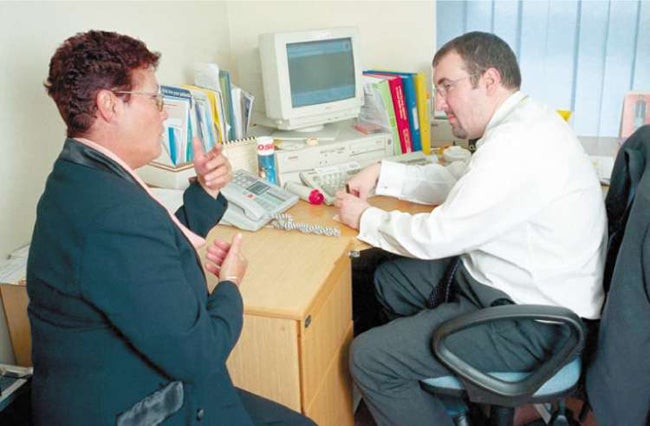Half of Britons believe NHS will cease to be free at point of use

Your support helps us to tell the story
From reproductive rights to climate change to Big Tech, The Independent is on the ground when the story is developing. Whether it's investigating the financials of Elon Musk's pro-Trump PAC or producing our latest documentary, 'The A Word', which shines a light on the American women fighting for reproductive rights, we know how important it is to parse out the facts from the messaging.
At such a critical moment in US history, we need reporters on the ground. Your donation allows us to keep sending journalists to speak to both sides of the story.
The Independent is trusted by Americans across the entire political spectrum. And unlike many other quality news outlets, we choose not to lock Americans out of our reporting and analysis with paywalls. We believe quality journalism should be available to everyone, paid for by those who can afford it.
Your support makes all the difference.Half the public believe they will have to pay directly towards their NHS treatment within a decade, a survey by the British Medical Association reveals.
The findings of the poll show that, on the NHS's 60th anniversary, public confidence in the Government's ability to sustain it as a comprehensive, free and universal service has sunk to a new low. Some 93 per cent of those surveyed believe the NHS should continue to be funded from taxes and remain free at the point of use.
The results were released by the BMA on the eve ofits annual conference in Edinburgh, which is expected to hear fierce criticism of the Government's handling of the NHS.
Doctors' leaders have clashed with ministers over extended opening hours for GPs, driven through in the face of widespread opposition from the profession, and the introduction of multi-GP "polyclinics", which are to be rolled out across London from next year.
The BMA poll findings reflect growing public pessimism about the wider economy and the impact of the global slowdown on the NHS. After five years of record growth from 2002 to 2007 averaging 7 per cent a year in real terms, the NHS's growth rate this year almost halved to just over 4 per cent.
Costs are increasing with a dozen new cancer drugs priced at up to £100,000 per patient per year in development. Although the NHS has built up a surplus expected to exceed £1bn in 2008-09, health economists say it will not be enough.
A spokeswoman for the BMA said the poll findings "illustrate people's fears for the NHS" in the wake of last week's review by Lord Darzi, which focused on improving quality by measuring outcomes of treatment and linking patient's opinions about their care to funding for hospitals and GPs.
"The BMA is in favour of much of what Lord Darzi recommended but there is scepticism that it is any more than fine words. It is high-level, aspirational stuff," said the spokeswoman.
The conference is due to debate proposals for "top-up" payments which would allow patients to pay separately for treatments not available on the NHS without losing their entitlement to NHS care. Under existing rules, NHS patients are banned from topping up their NHS treatment by paying privately for extra treatments but the Government announced a review of the ban last month, by the national cancer director, Mike Richards, who is due to report in the autumn.
The issue has become a touchstone for the NHS, highlighting the tension between cost pressures and economic realities.
Supporters of top-up payments point to the treatment of infertility where couples receiving IVF mostly pay privately but are not thereby debarred from NHS care during the subsequent pregnancy and delivery.
Opponents – who included the Health Secretary, Alan Johnson – say allowing top-up payments would introduce a two-tier service, with the best care available only to those who are able to pay.
This would create a new market for the private health insurance industry, offering policies to cover treatments not available on the NHS. Western Provident Association, a private health insurer, currently offers a policy covering the cost of licensed cancer drugs prescribed by a consultant but which are not funded by the NHS for a premium of £1 a week.
Join our commenting forum
Join thought-provoking conversations, follow other Independent readers and see their replies
Comments